Do you want to take advantage of the day to visit several malouinières?
Take advantage of the PASS €12*
* Pass €12 for adults, €6 for students and free for under-18s.
Gives you access to the 4 residences of your choice!
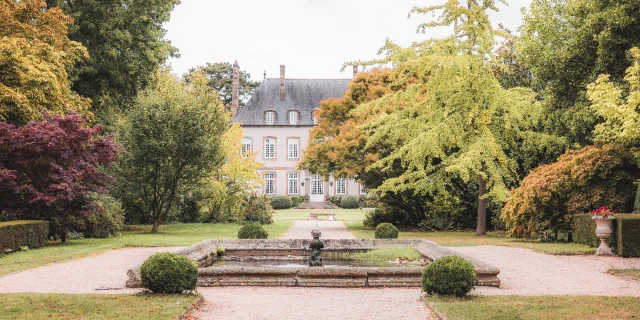 Malouiniere_de_la_Ville_Bague_-_Saint-Coulomb-LezBroz-5285
Malouiniere_de_la_Ville_Bague_-_Saint-Coulomb-LezBroz-5285* Pass €12 for adults, €6 for students and free for under-18s.
Gives you access to the 4 residences of your choice!
Last minute information!
La Malouinière de la Baronnie in Saint-Malo can no longer take part in this event
Built in 1602, the main dwelling is a single-storey, three-bay building that has undergone numerous transformations over the course of its life and successive periods of occupation. In particular, it was used as a monastic residence in the 17th and 18th centuries before returning to secular life. A belvedere adorned the roof and provided a view over the harbour of Saint-Malo. It was dismantled́ during the 39-45 war to prevent the house being requisitioned by the Germans.
After the fathers left, during the Revolution, the manor reverted to the natural heirs. Several different owners followed until the end of the 20th century when the malouinière fell into oblivion.
Restoration began in February 2016 with the current owners. The stables and sheds that clung to the facade were pulled down. The gardens are cleared. The ivy was removed from the walls. With the help of the Fondation du Patrimoine and the Architectes des Bâtiments de France, the house was gradually restored to its original state. Doors, windows, paintwork and rendering are being redone in strict accordance with the architects’ specifications.
Parking nearby
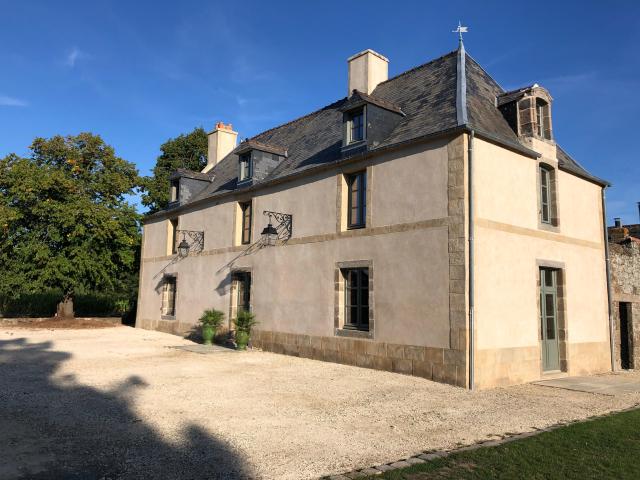 Malouinière de Clermont - Website
Malouinière de Clermont - Website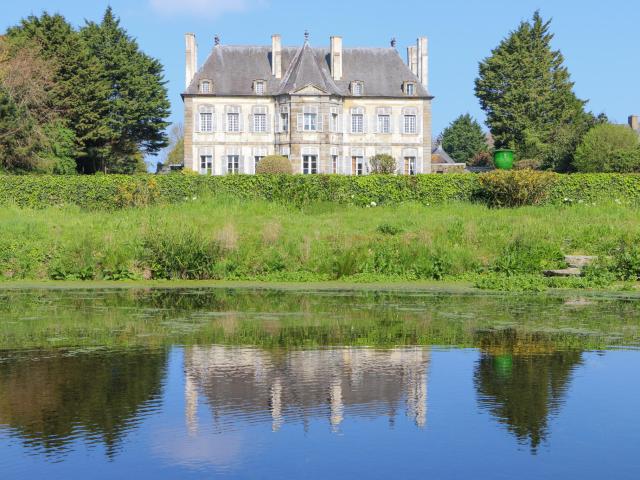 Malouiniere_de_La_Chipaudiere_-_Saint-Malo-SMBMSM-6130
Malouiniere_de_La_Chipaudiere_-_Saint-Malo-SMBMSM-6130Online booking: chipaudière.com
Parking nearby
“Set in the heart of an exceptional natural site, La Basse-Flourie, an early 18th-century Malouinière, offers a spectacular maritime view of the changing colours of the Rance. The garden is listed as a Historic Monument. Its terraced layout, descending step by step to the Rance, has enabled a variety of landscapes to be created: a classical garden, with its regular paths organised around a pond; a terrace with a maritime feel, with its umbrella pines and cypresses; a ‘test garden’ with a geometric structure in the French style and its hornbeam; an avenue of centuries-old hornbeams; a moor landscaped in the free spirit of an English garden, with numerous species of trees. The local species (oaks, hornbeams, lime trees, chestnut trees, etc.) have been enhanced by more exotic species, bearing witness to the South Sea expeditions of Malouin shipowners: palm trees, tulip trees, liquidambars.”
Parking nearby
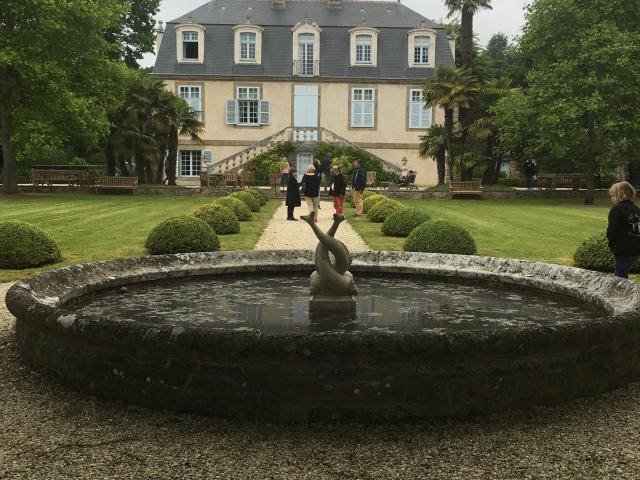 Malouiniere_de_la_Basse_Flourie_-_St_Malo-SMBMSM-9078
Malouiniere_de_la_Basse_Flourie_-_St_Malo-SMBMSM-9078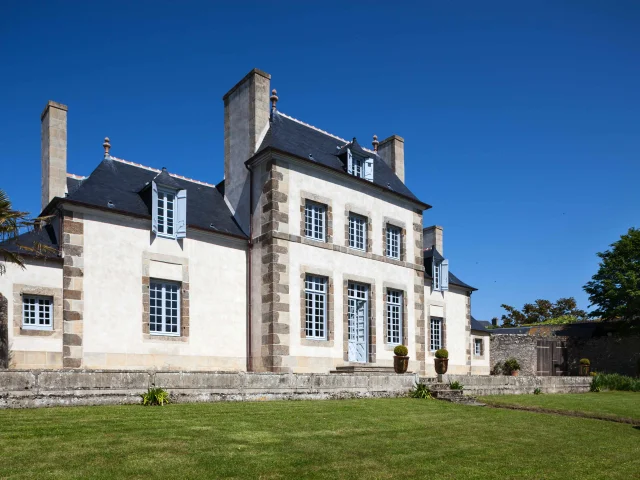 Manoir De Rivasselou Cyril Folliot Photographer
Manoir De Rivasselou Cyril Folliot PhotographerParking nearby
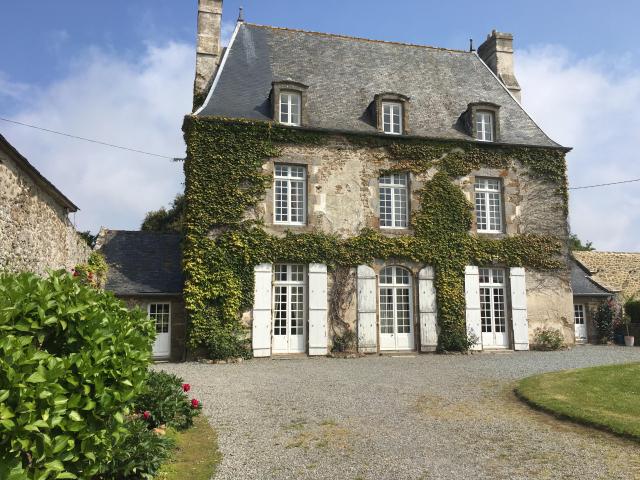 Malouiniere_La_Ville_Aze_-_St_Coulomb-SMBMSM-8537
Malouiniere_La_Ville_Aze_-_St_Coulomb-SMBMSM-8537“La Ville Aze is a small malouinière whose architecture is well representative of three-bay buildings. Located in the commune of Saint Coulomb, it is one of the largest known concentrations of malouinières, with 11 dwellings within a kilometre of each other. The date of construction is known from the inscription “1729” on the pediment of the central dormer window on the south facade. With no real changes over time, this house is typical of the smaller Malouinières known as “empty bottles”. The very simple architecture has all the features common to a large number of houses in the Malouin region, inspired by Garangeau, Vauban’s chief engineer. At Ville Aze, the facades are rigorously punctuated by the interplay of bays and painted entablature, the traditional dormer windows with segmental-arched lintels and moulded cornices, and a hipped roof with a very pronounced slope. The inventory would not be complete without mentioning the two small wings known as chartreuses. The slender roof and these two pavilions give La Ville Aze a distinctive architectural élan. Built right into the rock, the house has virtually no foundations. Inside, the partitions are all period and made of wood. The original roof timbers have been described as remarkable. Now part of a hamlet, Ville Aze was once close to a house that is now buried. There used to be a house at the bottom of what is now the Saint Suzanne pond. At that time, the side existed espalier gardens between the two houses.”
Parking nearby
In comparison with famous 18th-century malouinières such as Le Bos or La Chipaudière, La Motte aux Chauff seems modest. However, built in 1660, as attested by the lintel on the north door, it was the first malouinière of this size, with perfectly symmetrical openings, a construction characteristic that would become widespread much later. Capped by an imposing coyote roof, resting on a stone cornice and framed by shouldered chimneys, it is beautifully proportioned.
The stairwell is the most remarkable feature of the house, in terms of its size and state of preservation. It occupies a small third of the volume of the main building. The staircase features straight flights with landings at mid-floor and first floor level. It is adorned with a banister with double pear balusters and a central ring. The stairwell is decorated with small panelled panels in line with the banister leading to the first floor.
Parking nearby
 Malouiniere_La_Motte_aux_Chauff_-_Saint_Coulomb-SMBMSM-1852
Malouiniere_La_Motte_aux_Chauff_-_Saint_Coulomb-SMBMSM-1852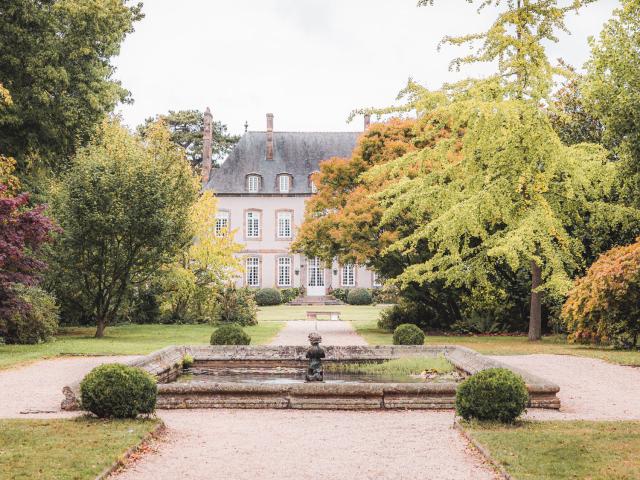 Malouiniere_de_la_Ville_Bague_-_Saint-Coulomb-LezBroz-5285
Malouiniere_de_la_Ville_Bague_-_Saint-Coulomb-LezBroz-5285Private 18th-century historic monument, located 10 minutes from Saint-Malo.
Shipowner’s residence, built in 1710 by Garangeau, Vauban’s architect, for the Eon de la Villebague family.
Seventeenth-century chapel and dovecote, 18th-century pond, walled 4-hectare park.
Tour of the malouinière interiors, collection of privateers’ weapons and period furniture, tableware.
Parking nearby
.
Intarissible on the history of the malouinière de la Fosse Hingant, Bernard de Prat, its owner, tells us about 600 years of history from 1418 to 2025 and the many transformations that have taken place over the centuries.
The current dwelling occupies the centre of a complex comprising the outbuildings, the chapel bearing the date 1781 (which corresponds to a restoration), the dovecote, the enclosing wall with its gate framed by pavilions and above all the billiard room, in the shape of a small ancient temple, at the end of the enclosure.
Parking nearby
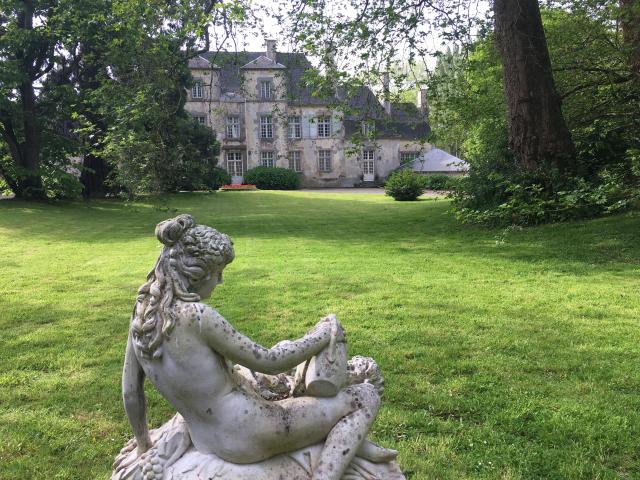 Malouiniere_La_Fosse_Hingant_-_St_Coulomb-SMBMSM-8516
Malouiniere_La_Fosse_Hingant_-_St_Coulomb-SMBMSM-8516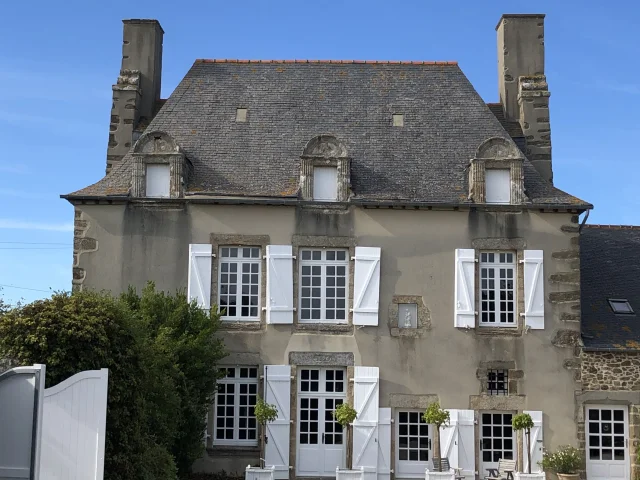 La Ville Es Treux
La Ville Es TreuxLa Ville-es-Treux, built in the early 17th century, was remodelled in 1696 which is why it is described as “pre-malouinière”. The facade features interesting architectural details that are rare in the area. During your visit, you’ll discover much more, including about sieur de La Villestreux, Pierre Perrée du Coudray (1656-1742), a privateer and shipowner from Saint Malo, who owned the premises.
Parking nearby
La Malouinière des Trauchandières was built in 1714 by privateer Guillaume La Perche des Trauchandières, who later became secretary to King Louis XIV.
He commanded La Glorieuse, one of the ships on Admiral Duguay-Trouin’s naval expedition to Brazil in 1711.
The previous year, the Portuguese had taken 700 French prisoners and Louis XIV had ordered an armada of 17 French ships to free them. The city, which was theoretically impregnable, was subdued and the governor of Rio de Janeiro was held for a substantial ransom.
This was divided into three parts: one for the King of France, the other for the crew and the third for the captain.
This operation proved a great success and all those who invested money doubled their stake.
Parking nearby
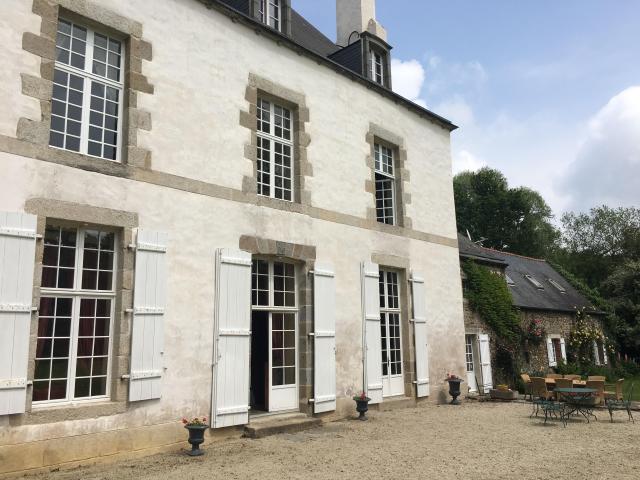 Malouiniere_des_Trauchandieres-SMBMSM-8695
Malouiniere_des_Trauchandieres-SMBMSM-8695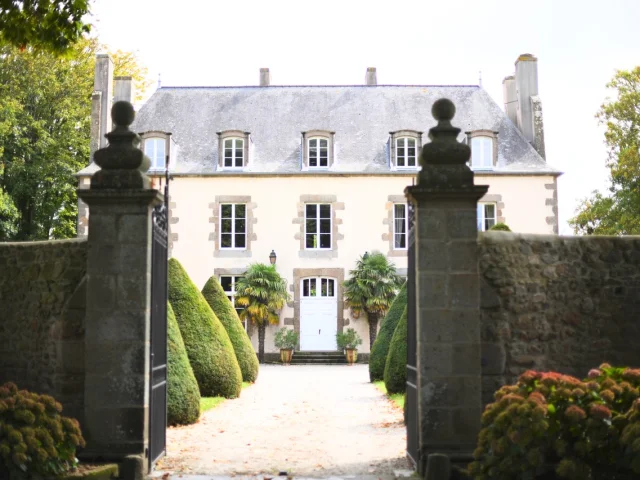 La Ville Gilles Malouiniere Saint Meloir Des Ondes
La Ville Gilles Malouiniere Saint Meloir Des Ondes“La Malouinière de la Villes Gilles was built in 1721 by Monsieur de Noailles, a shipowner from Saint Malo, a member of the Compagnie des Indes AND with 16 boats at sea. It remained in the family for several decades and was then owned by several private individuals before becoming the property of DASS after the 2nd World War, which turned it into a reformatory for adolescents.
Since 2021 Agnès and Marc Villand have undertaken a total renovation and, thanks to this commitment, it was awarded the Fondation du Patrimoine label in 2023. The estate comprises several buildings, a main house, a residential annex, a chapel and a stable, and extends over 12 hectares, 7.5 of which are arable. The 2-hectare pleasure park is planted with century-old trees: oaks, tulip trees, Araucarias, three-hundred-year-old chestnut trees and Gingko Biloba, and is complemented by a romantic garden and an austral garden. The property also boasts a 300 m2 stone-built horse bath.
The Malouinières were both stately homes and farms. To bring the estate back to life, it was also necessary to restore its agricultural vocation. With Agnès Villand having passed her agricultural BAC, growing tea gradually became an obvious choice, for a number of reasons: the beauty of the plant, its compatibility with the Breton soil and climate, the desire to bring potential customers closer to a quality product and to be part of a history of exchanges with the world. Tea production will reach maturity in 2027/2028.
See you soon for a visit.”
Parking nearby
La malouinière de la Picaudais was built by two Servan architects, Vincent Perré Delacroix and Guillaume Ruffier, at the request of the new owner, a wealthy Saint-Malo shipowner in the 16th and 17th centuries. This was René Hérisson, one of the richest shipowners in Saint-Malo (1641-1718), a merchant trading on the China and Peru route, who had the entire interior refurbished in the taste of the time and his discoveries of Asian countries.
Partly dilapidated, it was completely renovated a few years ago.
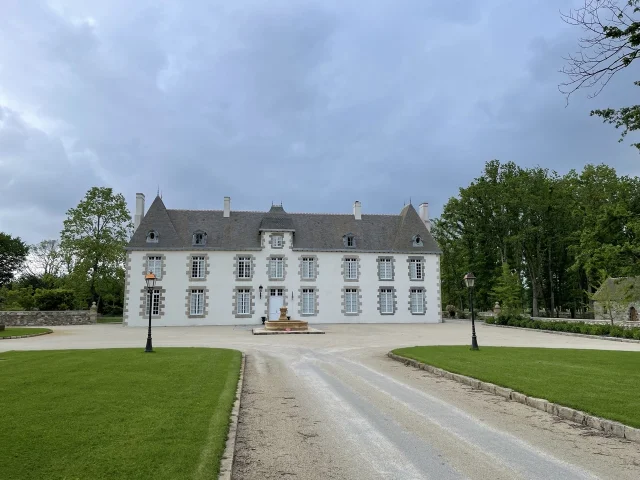 La Picaudais Malouiniere Saint Pere Marc En Poulet
La Picaudais Malouiniere Saint Pere Marc En Poulet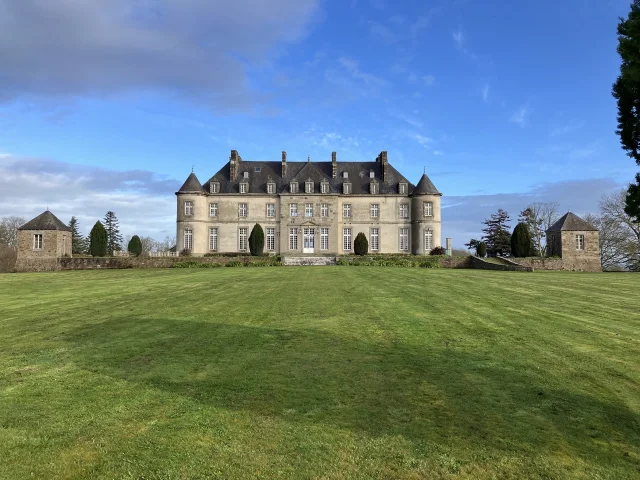 Chateau De Bonaban La Gouesniere
Chateau De Bonaban La Gouesniere“Château de Bonaban is one of the last and largest Malouinières ever built. Having suffered a turbulent life over the last twenty years, Château de Bonaban is about to undergo a major restoration campaign to house a private collection of design and contemporary art, as well as a garden of monumental sculptures. A true inventory of fixtures before the work, the guided tour includes: interior (grand staircase, salons and chapel), Park (17th-century dovecote and 19th-century greenhouses) and a presentation of the restoration project.”
On reservation – Online ticketing – Car park nearby.
Malouinière and Gardens classified as M.H. and “Remarkable Gardens”.
French gardens and romantic gardens overlooking the Rance estuary and descending into it via 4 successive levels of terraces. A shipyard in the 18th century, it was at Montmarin that some of Bougainville’s ships were fitted out. In the “Pavillon”, the last surviving building from the shipyard, you can see a scale model of the shipyard in its heyday.
Parking nearby
 Saint-Malo Tourisme - Malouinière du Montmarin (2)
Saint-Malo Tourisme - Malouinière du Montmarin (2)